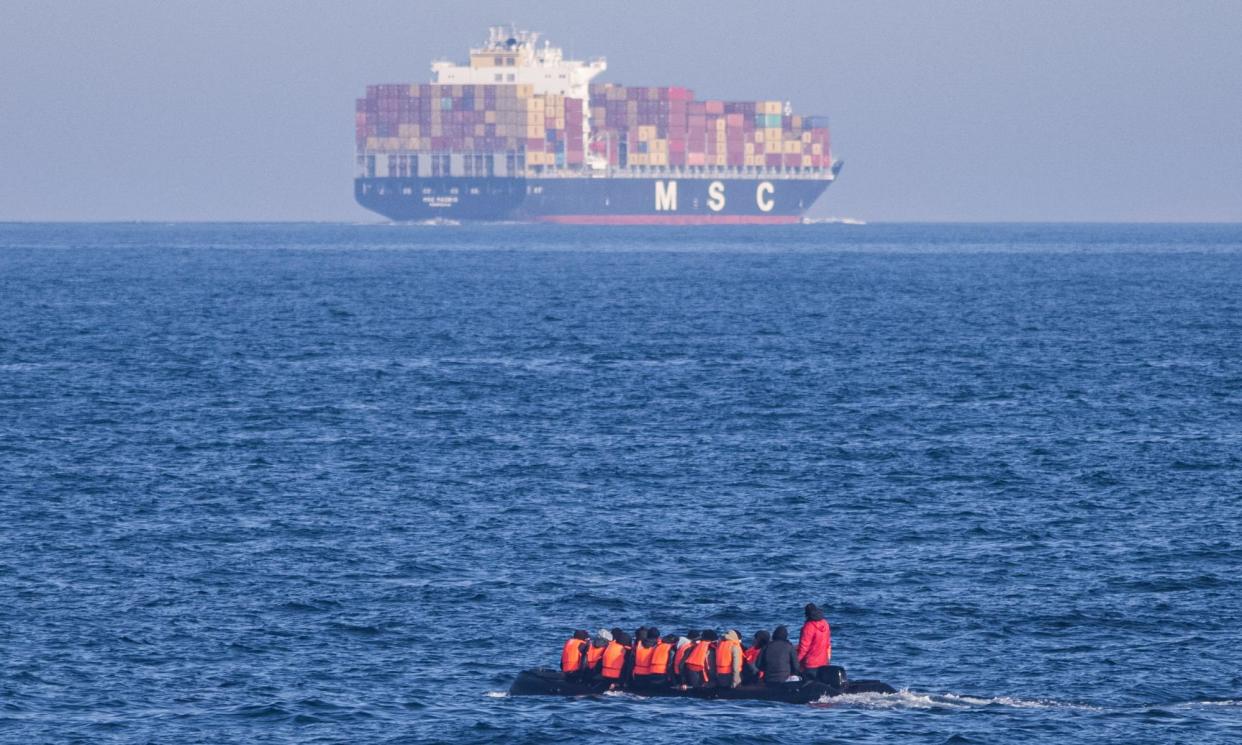Calais people-smuggling gang broken up with 19 arrests, says Europol

One of the most active and largest people-smuggling gangs operating in Calais has been dismantled with 19 “high-value targets” arrested by German, French and Belgian police after a year-long investigation, Europol has announced.
Operation Task Force Wave, involving 600 police, arrested the leader of the Iraqi Kurdish gang and five of the main organisers in Germany where the people-smuggling operation was orchestrated, police said.
The swoop on numerous addresses comes less than two months after five people drowned in Wimereux, a resort close to Calais, attempting to cross the Channel during freezing temperatures in early January.
Details of the investigation also lift the lid on how people-smuggling around Calais has been so successful, with almost 30,000 men, women and children crossing the Channel last year despite the risk of death.
Cheap dinghies were imported from China and transported into Germany through a complex operation involving surveillance by the gangs and rest areas in Belgium, where the smugglers would wait with the boats until given the order to head to Calais.
Premises in 26 locations were raided in Germany, with 24 boats, 175 life vests and 81 flotation devices for children seized along with 13 outboard motors, 14 engines and almost 60 electronic devices and a number of firearms.
The suspects were all based in Germany and are being detained under Belgian and French judicial orders.
Europol said: “The investigative activities, initiated at the end of 2022, identified the structure and modi operandi of this large criminal network, made up of Iraqi and Syrian nationals of Kurdish origin.”
Europol said the suspects “had set up their own logistical infrastructure with specific branches in charge of organising delivery of large amounts of nautical equipment” from China and into the EU via Turkey and on to France.
Drivers typically transported eight boats at a time with “a forerunner car” scouting the route throughout the journey to avoid police detection. “The drivers were located in rest areas in Belgium before they drove the equipment to a spot at the time of departure,” said Europol.
“When used legally, such boats would not be suitable nor safe for the transportation of more than 10 individuals. However, on average, smugglers put around 50 migrants in one of these boats. In total, the investigators have gathered evidence linking at least 55 departures that were facilitated solely by this smuggling network. The suspects collected between €1,000 [£856] and €3,000 per migrant for a place,” said Europol.
In a detailed four-page statement, Europol said small-boat smuggling activities had increased on the English route since 2019 and “are becoming increasingly violent while adapting” activities and crossing points.
Related: Videos show migrants stripped of clothing in freezing temperatures at Serbian border
It said the operations were complex, with intermediaries recruiting people hoping to cross, maintaining contacts with low-level criminals, overseeing logistical arrangements and handling payments while the gang bosses are often elsewhere.
Police from Bruges and Lille were involved, with sources saying the gangs operating in the Calais region were either controlled or “have to get the blessing of” Iraqis who run the criminal operation from afar.
EU police sources say people-smuggling on the northern French coast has been dominated by Iraqi gangs for years.
The UK and the EU are about to agree a deal to share real-time data on migration in a further sign of thawing post-Brexit relations.
The deal is expected to be signed in London on Friday by Sunak and the EU home affairs commissioner, Ylva Johansson, giving the UK access to Frontex (the EU’s border agency) risk analysis and to information from Eurosur, the EU’s drone and satellite surveillance of the Mediterranean and other external border areas.


